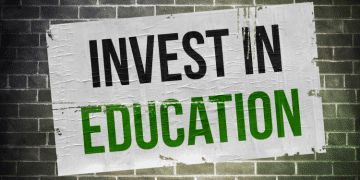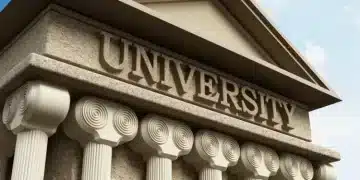Government and NGO Programs Changing South African Financial Literacy

Before the bills, debt, or poor decisions stacked up, have you ever wished someone had taught you how to handle your money?
You’re not alone.
Most South Africans never received formal financial education growing up.
That means we’ve had to learn the hard way—through overdrafts, loan rejections, or financial stress.
But there’s good news.
A growing number of Government and NGO Programs are stepping in to bridge that gap.
These programs are making financial literacy in South Africa more accessible, relevant, and practical than ever before.
In this article, we’ll explore the top programs transforming financial education in the country—what they offer, who they help, and how you can get involved.
Because understanding money shouldn’t be a privilege.
It should be a life skill—available to all.
Why Financial Literacy Is a National Priority in 2025
South Africa is facing serious financial challenges:
- Over 70% of adults are financially illiterate (FinScope SA, 2023)
- Youth unemployment remains over 45%
- The national savings rate is one of the lowest in the world
- Consumer debt levels continue to rise, with more than 60% of disposable income going to debt repayments (TransUnion, 2024)
Yet, financial literacy isn’t just about money—it’s about empowerment.
It means knowing how to budget, save, manage debt, and invest.
It’s the foundation of financial freedom, confidence, and long-term security.
That’s where education comes in. And the public and non-profit sectors are stepping up.
Financial Literacy South Africa – Powered by Government and NGO Programs
Let’s take a closer look at the most impactful financial planning education initiatives across the country.
1. National Treasury’s Money Smart Week South Africa (MSWSA)
Type: Government-led campaign
Target audience: General public (all age groups)
Delivery: Nationwide events and digital learning
What it is:
MSWSA is an annual campaign launched by the National Treasury to raise awareness and improve financial capability in communities across the country.
What it offers:
- Free webinars and workshops
- Mobile financial education events
- School and university outreach
- Interactive content in multiple languages
Why it matters:
It connects citizens to practical information—budgeting tools, savings tips, banking advice, and more.
How to access:
Visit www.mswsa.co.za or follow the campaign during Financial Literacy Month every March.
2. National Consumer Financial Education Committee (NCFEC)
Type: Government + private sector coalition
Target audience: Consumers and educators
Delivery: Strategy, coordination, resource hub
What it is:
The NCFEC was created to oversee and coordinate financial education programs across SA, aligning stakeholders around a shared National Financial Education Strategy.
What it does:
- Sets national standards for financial literacy
- Tracks impact and coverage of initiatives
- Develops toolkits for schools and workplaces
Why it matters:
It ensures money management courses and content aren’t just scattered—they’re coordinated and measurable.
How to access:
Through the Financial Sector Conduct Authority (FSCA) and partner programs like FSCA’s FinSmart campaign.
Read More: Beginner’s Guide to Financial Literacy in South Africa (Free Course Inside)

3. Old Mutual’s “On the Money” Financial Education Programme
Type: Private sector with public outreach
Target audience: Working adults, community groups
Delivery: In-person workshops and corporate programs
What it is:
Old Mutual’s flagship financial education series uses five animal characters (Owl, Squirrel, Buffalo, Dog, and Rabbit) to teach smart money habits.
What it offers:
- Fun, relatable workshops
- Visual guides and worksheets
- Financial planning education around saving, budgeting, debt and insurance
Why it matters:
The program has reached over 1 million South Africans and is available in all 11 official languages.
How to access:
Ask your employer to bring it to your workplace or contact Old Mutual directly for community access.
4. South African Savings Institute (SASI) – Smart About Money
Type: NGO + government partnership
Target audience: Youth and adult learners
Delivery: Online self-paced learning
What it is:
A free online platform offering investment basics, saving strategies, and practical budgeting advice.
What it offers:
- Short videos, quizzes, and articles
- Local case studies
- Multi-language options
Why it matters:
It’s one of the few digital platforms designed specifically for the South African financial landscape.
How to access:
Visit www.smartaboutmoney.co.za for free access.
5. National Youth Development Agency (NYDA) – Youth Financial Literacy
Type: Government agency initiative
Target audience: South Africans aged 18–35
Delivery: In-person training + digital resources
What it is:
NYDA offers structured money management courses that support jobseekers, entrepreneurs, and students in managing their finances.
What it offers:
- Budgeting and saving workshops
- Access to micro-finance and grants
- Entrepreneurship + financial skills bootcamps
Why it matters:
It helps young South Africans make smart money decisions before bad habits form.
How to access:
Apply online at www.nyda.gov.za or visit your nearest NYDA office.
6. Junior Achievement South Africa (JASA)
Type: NGO (non-profit)
Target audience: High school and tertiary students
Delivery: School-based programs and weekend workshops
What it is:
JASA runs school-based programs that combine entrepreneurship, financial literacy, and leadership.
What it offers:
- Youth financial education curriculum
- Business simulation games
- Group-based learning and mentorship
Why it matters:
Young people learn the principles of running a business and managing their own finances early on.
How to access:
Through your school or by reaching out to www.jasa.org.za.
7. SaveAct – Village Savings and Loan Associations
Type: Community NGO
Target audience: Rural and township communities
Delivery: Peer-to-peer training and savings groups
What it is:
SaveAct helps low-income individuals—especially women—form savings groups to manage money together.
What it offers:
- Group savings and lending models (stokvel-style)
- Financial literacy training
- Economic empowerment for the unbanked
Why it matters:
It enables financial inclusion and education in communities where formal institutions often fall short.
How to access:
Join or form a group via www.saveact.org.za.
Read More: How Live Financial Sessions Help You Make Smarter Investment Choices?

8. FinMark Trust – Financial Education & Inclusion Research
Type: Research-focused NGO
Target audience: Policymakers, NGOs, and banks
Delivery: Research, policy guidance, pilot programs
What it is:
While not a direct learning platform, FinMark creates the data that shapes smart financial programs across the country.
What it offers:
- Reports on financial behaviour
- Tools to evaluate program success
- Support for financial tech innovation
Why it matters:
Behind every smart financial education strategy is solid data—and FinMark leads the way.
What’s Working on Government and NGO Programs: Impact & Outcomes
-
Wider Reach
Thanks to mobile technology, platforms like Smart About Money and Fineduza now reach remote areas once cut off from traditional education.
-
Early Education
Programs like JASA and NYDA target youth early—before they fall into debt or poor financial habits.
-
Community-Based Learning
Organizations like SaveAct show that peer-to-peer learning builds trust and drives long-term behaviour change.
-
Workplace Workshops
Employers investing in staff through Old Mutual or bank-sponsored programs report better morale and reduced absenteeism due to financial stress.
How to Get Involved (Even If You’re Starting from Scratch)?
-
Pick a program that fits your lifestyle
If you’re busy, go online. If you prefer face-to-face, find a local workshop.
-
Start with your biggest financial challenge
Is it budgeting? Saving? Investing? Start there—don’t try to learn it all at once.
-
Join with a friend or partner
Learning with someone else makes it easier to stay accountable.
-
Apply what you learn immediately
Even small changes—like tracking expenses or opening a savings account—can build momentum.
Conclusion: Financial Literacy South Africa Is Growing—Be Part of It
Whether you’re 18 or 58, financially secure or just starting out, there’s a program for you.
You don’t need to wait for a raise or a windfall to change your financial life.
You just need the right knowledge—and the will to act on it.
Thanks to coordinated efforts from government and NGOs, financial planning education is no longer out of reach.
It’s in your community, your workplace, your phone—and your future.
So ask yourself: If not now, when?
Start with one free course. One workshop. One habit.
Because every step toward financial confidence is a step toward freedom.

FAQs on Government and NGO Programs
-
Are these free financial education initiatives truly that?
Indeed, most government and non-governmental programs such SaveAct, NYDA, and SASI are either totally free or very cheap.
-
Can I go even if I’m unemployed?
Surely. Many programs, in fact, are meant especially for low-income earners, students, and jobless people.
-
Do these courses available in rural areas?
Indeed. Projects like SaveAct and Smart About Money provide township and rural access top priority using in-person groups or mobile learning.
-
Where can I find a course close by?
First, get in touch with nearby NGOs, visit your municipal office, or review program websites highlighted above.
-
Are these initiatives actually successful?
Certainly. Within months of finishing a course, many participants say they have improved money practices, lowered debt, and raised savings.





